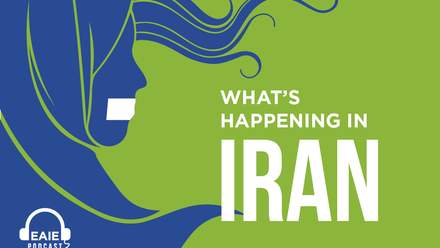A tool with global potential: Qualifications Passport for Refugees

What started as the ‘Norwegian approach’ has grown to become an international solution for aspiring students with refugee backgrounds: the Qualifications Passport for Refugees. In their last update on the project, NOKUT celebrated the issuing of the first European Qualifications Passport for Refugees, a major milestone. Since then, the methodology has spread to multiple other countries, being used to issue Qualifications Passports to more than 300 individuals. The next step: global adaptation.
In 2015, there was a need to revisit the procedures for recognition of refugees’ qualifications. The sudden increase in migration to Europe made it painfully visible that our systems were incapable of responding to the specific needs of many refugees and persons in refugee-like situations.
Refugees face certain challenges that others do not when seeking recognition of their qualifications. Often refugees cannot access verifiable documentation of prior education or work experience, and the institutions that granted and archived these documents might no longer exist. In addition, refugees’ proficiency in the language of the host country may be lacking.
These obstacles can lead to missed opportunities for finding relevant work, barred access to further education, and an inability to make full use of knowledge and skills that could benefit the individual and society at large. According to the UNHCR, only 1% of refugee youth attends university. So what can we do?
In 2015, NOKUT (the Norwegian ENIC-NARIC) had years of experience in recognising qualifications held by persons lacking verifiable documentation. Building on the competences gained through interview-based recognition procedures such as the UVD-procedure (for persons without verifiable documentation), NOKUT, in cooperation with UK NARIC, designed a new concept: the Qualifications Passport for Refugees. At the core is a formalised statement on the qualifications held by a refugee, based on a critical evaluation by trained credential evaluators.
Passports that are international by nature
The Qualifications Passport for Refugees is international by nature. The name ‘passport’ was deliberately chosen to reflect the purpose of the document: to enable the mobility of qualifications. Making this a reality involves gaining acceptance for the document in as many countries as possible.
From the very beginning the ambition was to spread the methodology outside Norway
The Qualifications Passport is a portable and universal international instrument, rather than a national or bilateral one. Thus, from the very beginning the ambition was to spread the methodology outside Norway. Since 2017, the Council of Europe has issued the European Qualifications Passport for Refugees (EQPR) based on concepts and methods developed in Norway. NOKUT provides training in the methodology and serves as content coordinator for the EQPR scheme.
EQPR assessment sessions have been held in France, Greece, Italy and the Netherlands. National centres for information on recognition and mobility (ENIC-NARICs) and ministries have contributed to the project and worked closely together in conducting interviews and assessing documents. The scheme is currently receiving financial support from the governments of Belgium (Flanders), Greece, Italy and Norway.
Currently, more than 300 persons have been issued a Qualifications Passport for Refugees
In addition, it is also worth noting that small-scale testing of the Qualifications Passport methodology has been successfully carried out in Armenia, Germany, Lebanon and Turkey. This is done in cooperation with local experts, ministries and agencies, in projects financed by the European Commission and the Norwegian government. Currently, more than 300 persons have been issued a Qualifications Passport for Refugees.
Rapid development over the last two years
Two years ago, we had the privilege and honour to receive the Bo Gregersen Award for best practice. Many things have happened since then, and the Qualifications Passport for Refugees has developed and expanded both in scope and in size.
In November 2017, the Lisbon Recognition Convention Committee adopted the Recommendation on the Recognition of Refugees’ Qualifications, and the Qualifications Passport for Refugees is mentioned specifically as an example of good practice.
The Qualifications Passport for Refugees has also drawn attention from outside the world of higher education, most notably by agencies and individuals involved in migration policy work. The Qualifications Passport for Refugees was mentioned as a purposeful practical tool in the Declaration from the Global Education Meeting in Brussels in December 2018, the Marrakech Compact in December 2018 and the Global Education Monitoring Report 2019.
A methodology with global potential
There are good reasons to believe that the Qualifications Passport is a tool with global potential. The Norwegian Ministry of Education and Research has publicly declared support for a potential global upscaling under the umbrella of UNESCO. Several countries outside Europe have also expressed an interest in using the methodology. More than 300 refugees are today in possession of a Qualifications Passport. Holders have been able to enrol in higher education and find work using the document. The feedback from employers, higher education institutions and immigration agencies has been widely positive.
The Qualifications Passport for Refugees started as a small idea by NOKUT, but has evolved into a methodology that is now being used in many European countries. A global adaptation of the methodology is feasible. We are excited to continue on this path towards positive change.






